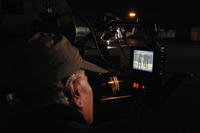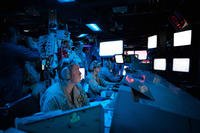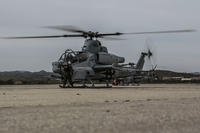Another round of suspected chemical attacks have yielded little response from the White House a few days after Chairman of the Joint Chiefs of Staff Gen. Martin Dempsey repeated reasons for the U.S. to stay out of the civil war.
Horrific videos taken by opponents of the regime of President Bashar al-Assad purported to show the dead and writhing victims of what was said to be a rocket attack with chemical weapons on the eastern Damascus suburbs of Ain Tarma, Zamalka and Jobar.
Opposition groups gave varying estimates on the number killed, ranging from 136 reported by the London-based Syrian Observatory for Human Rights to more than 1,000 by other opposition figures.
Earlier this week, a United Nations inspection team arrived in Damascus to investigate previous charges that chemical weapons were used at least three times earlier this year, but there were no immediate signs that UN teams would go to the site of the recent attack.
At an emergency session Wednesday of the UN Security Council, Russia, Assad's main foreign ally, blocked a proposal to send the inspection team to the scene of the attacks immediately.
The new U.S. ambassador to the UN, Samantha Power -- who has written extensively on the U.S. and the world body's "responsibility to protect" victims of dictatorial regimes -- did not attend the emergency session and sent a representative.
Critics of the Obama administration's Syria policy led by Sen. John McCain, R-Ariz., have urged that the U.S. impose a no-fly zone over Syria, crater runways used by Assad's air force, and speed the delivery of heavy weapons to the rebels.
Dempsey, the chairman of the Joint Chiefs of Staff, has repeatedly warned against U.S. involvement.
Earlier this week, in a letter to Rep. Eliot Engel, D-N.Y., Dempsey said "Syria today is not about choosing between two sides but rather about choosing one among many sides." This was a reference to Al-Qaeda-linked groups among the estimated 50 factions fighting against Assad.
"It is my belief that the side we choose must be ready to promote their interests and ours when the balance shifts in their favor. Today, they are not," Dempsey said in the letter.
In July, Dempsey sent a similar letter to the Senate Armed Services Committee stating that setting up a no-fly zone would take hundreds of U.S. aircraft and cost $1 billion a month, with no assurances that such action would change the course of the civil war that the UN estimates has cost more than 100,000 lives.
Last year, Obama said that Syria's use of chemical weapons was a "red line" for U.S. policy, and stated that the U.S. "will not tolerate the use of chemical weapons against the Syrian people."
In May, the White House announced that the U.S. would send small arms and ammunition to "moderate" rebel factions after the CIA concluded that Assad's forces had used chemical weapons including the nerve agent Sarin in "small amounts." However, the rebels have complained repeatedly that no U.S. arms deliveries have arrived.
In a statement Thursday, McCain noted that the U.S. repeatedly has warned Assad against using chemical weapons, but "because these threats have not been backed up by any real consequences, they have rung hollow."
"As a result, the killing goes on, Assad remains in power, and his use of chemical weapons against Syrian civilians apparently continues," McCain said. "It is long past time for the United States and our friends and allies to respond to Assad's continuing mass atrocities in Syria with decisive actions, including limited military strikes to degrade Assad's air power and ballistic missile capabilities."
Deputy Press Secretary Josh Earnest gave the initial White House response, saying the U.S. was "deeply concerned" by the latest reports of a chemical attack and calling on the UN to "urgently investigate."
Earnest also acknowledged that U.S. demand for Assad's ouster "has not resulted in the outcome that we would like to see, which is Assad being completely removed from power."






























